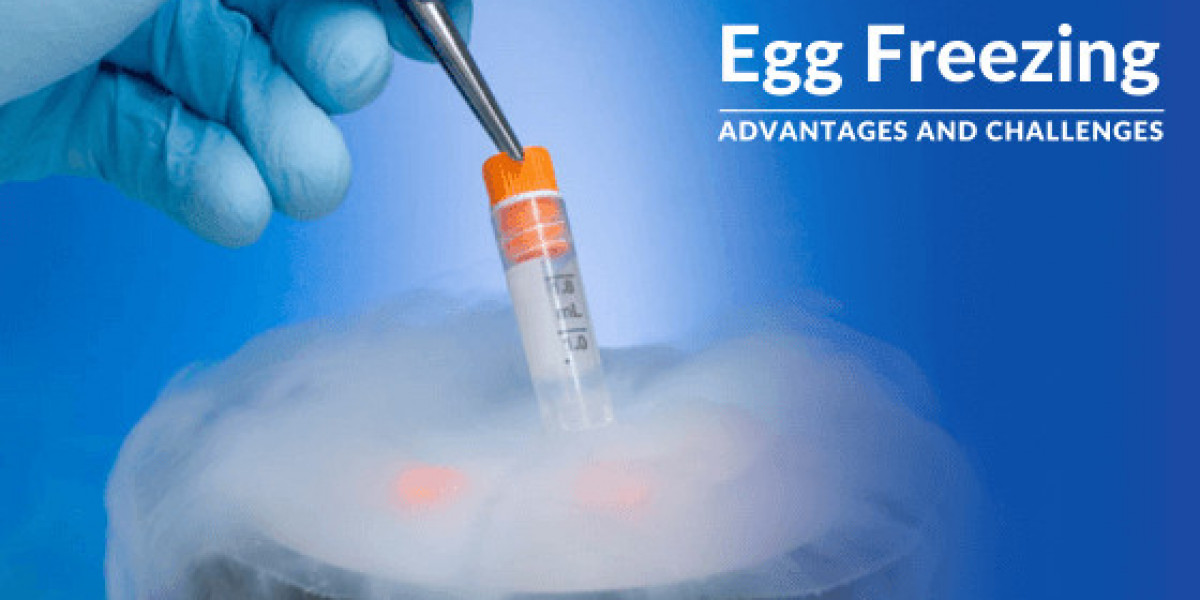Egg freezing, also known as oocyte cryopreservation, is a medical procedure that allows women to preserve their fertility for future use. It is an effective method for those who wish to delay pregnancy due to medical, personal, or career-related reasons. The process involves extracting, freezing, and storing a woman's eggs, which can later be used in assisted reproductive treatments.
Why Do You Need the Egg Freezing Process?
Egg freezing can be beneficial for several reasons, including:
Medical Reasons: Women undergoing cancer treatments like chemotherapy or radiation may choose egg freezing to preserve fertility.
Delayed Childbearing: Many women prefer to focus on their careers or personal growth before starting a family.
Premature Ovarian Failure: Women with a family history of early menopause can opt for egg freezing.
Ethical and Religious Concerns: Some women may prefer egg freezing over embryo freezing due to personal or ethical beliefs.
Uncertain Relationships: Women who are unsure about having a partner in the future can secure their reproductive options.
Cost of the Egg Freezing Process
The cost of egg freezing varies based on location, clinic, and the number of cycles required. On average, the cost in India ranges between INR 1.5 to 3 lakhs per cycle. Additional costs may include:
Medications: INR 50,000 - 1 lakh
Storage Fees: INR 10,000 - 30,000 per year
Future IVF Costs: INR 1.5 - 2.5 lakhs (when using frozen eggs)
If you are looking for affordable fertility treatments, visiting the Best IVF Centre in Agra can help you understand the financial aspects in detail.
Types of Egg Freezing Processes
There are two primary types of egg freezing methods:
Slow Freezing
Involves gradually cooling eggs before storage.
Prevents damage by using cryoprotectants.
Less commonly used due to lower success rates.
Vitrification (Rapid Freezing)
Uses ultra-rapid cooling to prevent ice crystal formation.
Higher success rates and better post-thaw egg survival.
Preferred method at modern fertility centers.
Steps in the Egg Freezing Process
1. Initial Consultation & Screening
A fertility specialist assesses the patient's health and fertility status.
Blood tests and ultrasounds determine ovarian reserve and hormone levels.
2. Ovarian Stimulation
Hormonal injections stimulate the ovaries to produce multiple eggs.
Monitoring through ultrasound and blood tests ensures proper response.
3. Egg Retrieval (Oocyte Retrieval)
A minor surgical procedure under anesthesia.
A needle is used to collect eggs from the ovaries.
4. Freezing the Eggs
Eggs are assessed for maturity and quality.
Vitrification is performed to freeze them at extremely low temperatures.
5. Storage & Future Use
Frozen eggs can be stored for years.
When ready for pregnancy, they are thawed and fertilized via In-Vitro Fertilization (IVF).
Essential Details About Egg Freezing
The success rate of pregnancy depends on the age at which eggs are frozen. Younger eggs (below 35 years) have higher chances of successful fertilization.
Egg freezing does not guarantee pregnancy, but it increases the probability of conception.
Women can store eggs for up to 10-15 years, depending on the clinic's policies.
The procedure is safe, with minimal side effects such as bloating or mild discomfort.
Choosing the Best IVF Centre in Agra ensures high success rates and expert medical care.
Conclusion
Egg freezing is a revolutionary procedure that empowers women to take control of their reproductive future. Whether for medical or personal reasons, it offers a secure way to preserve fertility. If you're considering this option, consult with a leading IVF center to explore the best approach for your needs.
If you are looking for expert guidance, visit the Best IVF Centre in Agra for personalized fertility solutions and state-of-the-art facilities.








